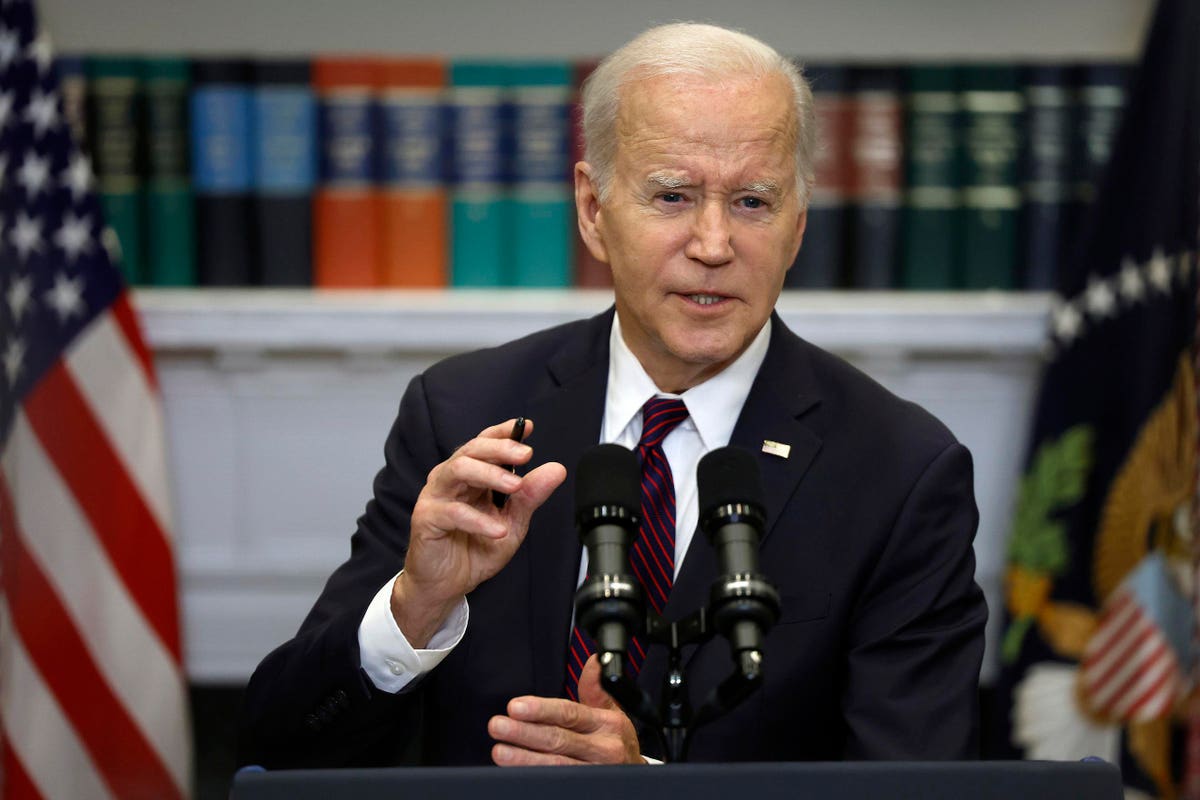People far wiser than I have gone on at length about the debt ceiling—the limit of how much the U.S. can borrow to pay for what it has already committed to spend. Treasury Secretary Janet Yellen warned of an “economic catastrophe,” possibly as early as June 1.
Without more money or borrowing, it would “drastically reduce the amount of spending, would mean that Social Security recipients and veterans and people counting on money from the government that they’re owed, contractors, we just wouldn’t have enough money to pay the bills,” Yellen said on CNBC.
That is one correct framing, certainly—money being the key aspect. Not enough to pay for commitments and purchases already made. The same framing continues throughout the political posturing, arm-twisting, and coverage. Republicans want spending cuts, though only in the areas where they always want spending cuts and not increases in revenue sources like taxes on corporations and the wealthy that were deeply pruned in the GOP’s 2017 Tax Cuts and Jobs bill.
At the same time, President Biden and the administration don’t want to give essentially axe programs they’ve pushed and want the focus on cutting to come after an increase in the debt ceiling—an action that typically never occurs.
In a way, though, the framing of money is inadequate to the situation because the debt ceiling debate at its heart isn’t about budgets and economics. It’s about trust and psychology.
Often you hear politicians and pundits go on, comparing government spending with how a family budget works. Then you hear others say that the two have nothing in common. In a way, though, both approaches are right.
A family doesn’t have its own currency. It doesn’t control the dynamics of how it borrows. Families certainly cannot borrow indefinitely and survive because they owe debt in someone else’s currency. Make enough in that currency to pay the bills or you’re sunk. It’s a point that supporters of modern monetary theory frequently make. “Print” more money and so long as you don’t run inflation too high, you can keep things going.
But when it comes to debt, both governments and families come up hard against the principle of trust. Those who lend the money, whether directly as cash or through the advanced provision of services and goods with expectations of payment to come, have to trust that the buyer ultimately has the resources and the good will to pay.
What happens when a family’s debt exceeds the ability to pay? First come the dunning letters and calls, then credit gets cut off, collections start, maybe lawsuits. The memory lingers through systems and mechanisms that pass along names of those that sellers feel they cannot trust. Others get the information through credit services, and eventually that family is in a box. It may not be able to get what it needs until it finally begins to pay back what it owes.
The same dynamic can happen on a national level. Countries borrow, find themselves in financial trouble, spend in currencies they don’t own, then eventually face the reaction of creditors and sources of money. The U.S. does own its own currency, one of the world’s reserve currencies, but still bond holders who have lent money to the government want to get the payments they’ve been promised.
As Yellen pointed out, also Social Security recipients expect to get paid the money they were promised over many years of paying into a system. Companies doing business with the U.S. need to be paid.
Miss payments on any of these because the country doesn’t have the money and the situation is a default. The truth is that no one knows exactly what would happen in a practical sense. There is speculation, like domestic and international credit markets seizing up, massive losses of jobs, maybe a recession, or possibly a depression, the likes of which no one living has ever seen.
But, again, that’s measurement in money. Take out a tape measure marked in trust and the results are likely that no one ever trusts the U.S. again. Well, at least for an incredibly long time. Because we’ve become untrustworthy.
Threatening a default as a way to lower spending? Absurd. That should be done in calmer moods, but neither major political party has shown practical interest. The true treasure that is being threatened by politicians who want their way as part of a dance to gain and keep power is the good word of the U.S. Once gone, it won’t come back.
Read the full article here


